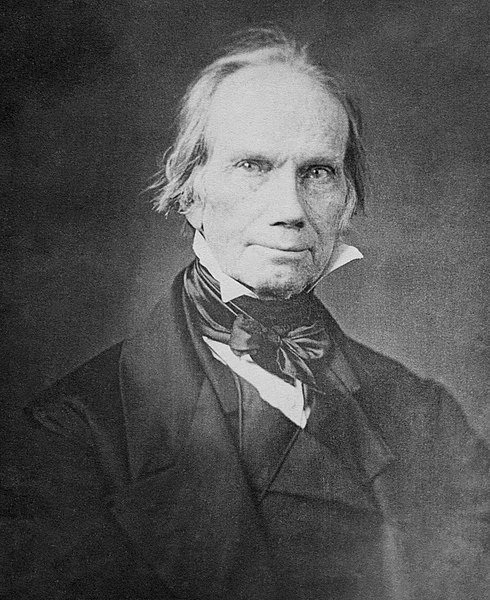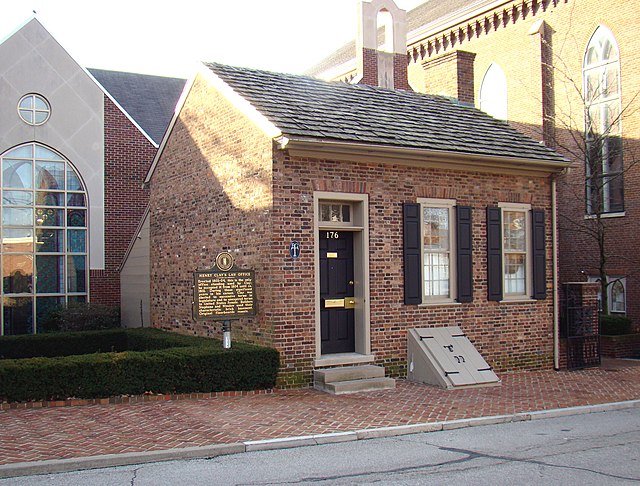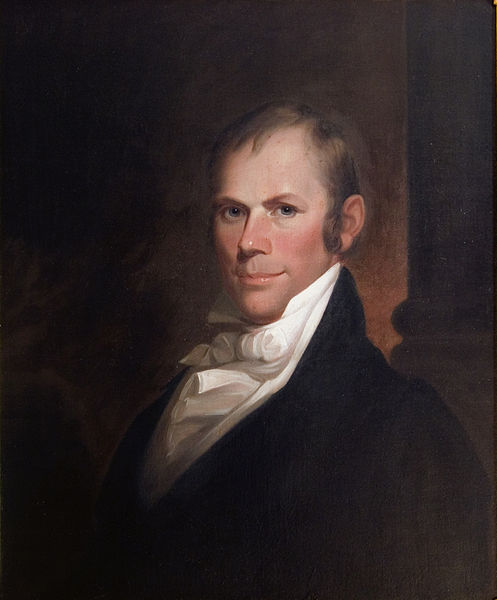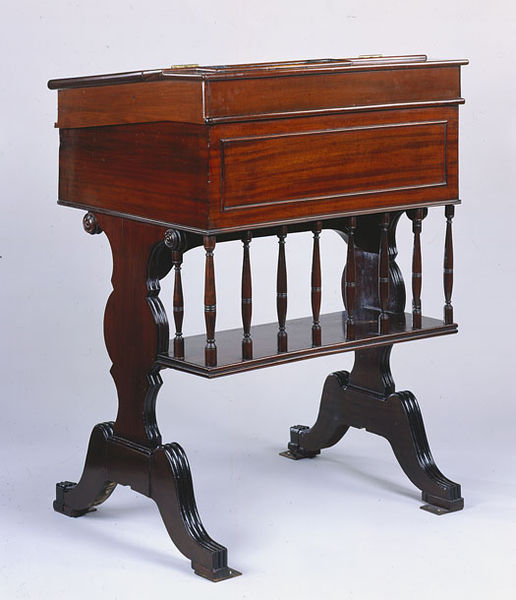Henry Clay Sr. was an American lawyer and statesman who represented Kentucky in both the U.S. Senate and House of Representatives. He was the seventh House speaker as well as the ninth secretary of state. He unsuccessfully ran for president in the 1824, 1832, and 1844 elections. He helped found both the National Republican Party and the Whig Party. For his role in defusing sectional crises, he earned the appellation of the "Great Compromiser" and was part of the "Great Triumvirate" of Congressmen, alongside fellow Whig Daniel Webster and Democrat John C. Calhoun.
Clay in 1848
View of Henry Clay's law office (1803–1810), Lexington, Kentucky
Portrait by Matthew Harris Jouett, 1818
Portrait of Henry Clay
The United States Senate is the upper chamber of the United States Congress. The United States Senate and the lower chamber of Congress, the United States House of Representatives, comprise the federal bicameral legislature of the United States. Together, the Senate and the House maintain authority under Article One of the U.S. Constitution to pass or defeat federal legislation. The Senate has exclusive power to confirm U.S. presidential appointments, approve or reject treaties, and try cases of impeachment brought by the House. The Senate and the House provide a check and balance on the powers of the executive and judicial branches of government.
United States Senate
A typical Senate desk on the floor of the United States Senate
The Senate side of the United States Capitol in Washington, D.C.
Committee Room 226 in the Dirksen Senate Office Building, used for hearings by the Senate Judiciary Committee








